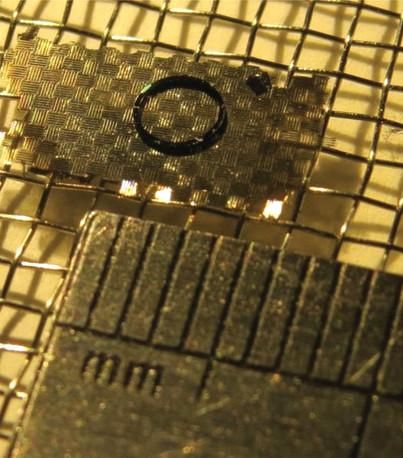Tiny, Levitating ‘Nanocardboard’ Aircraft could Explore Mars One Day
By Chelsea Gohd | Staff WriterSPACE.COM – April 23, 2020 | Tiny, levitating “nanocardboard” flyers could one day explore the dusty red surface of Mars.
This summer, NASA will launch its newest Mars rover, Perseverance, and a helicopter that will fly over the planet’s surface as part of a “high-risk, high-reward” experiment. But even before its launch, researchers are designing much more ambitious aircraft for Mars as well.
Researchers tested the “nanocardboard” flyers’ ability to carry small payloads. (Image credit: Bargatin Group, Penn Engineering)Of particular interest are flying aircraft that could, with less risk, more effectively observe and study Mars’ surface. In a new study, researchers have demonstrated the abilities of a unique fleet of aircraft that could thrive on Mars: tiny “nanocardboard” flying vehicles. These aircraft each weigh about a third of a milligram, or less than a fruit fly, and have no moving parts. Instead of flying with wings or rotating blades, they actually levitate.
“The Mars Helicopter is very exciting, but it’s still a single, complicated machine,” lead author Igor Bargatin of the School of Engineering and Applied Science at the University of Pennsylvania, who is not involved in the Mars Helicopter, said in a statement. “If anything goes wrong, your experiment is over, since there’s no way of fixing it. We’re proposing an entirely different approach that doesn’t put all of your eggs in one basket.”
Hoping they know how complicated 0.007 millibars at 150 km/h is… Some things on Mars need a bit of weight.
